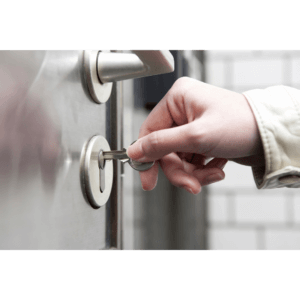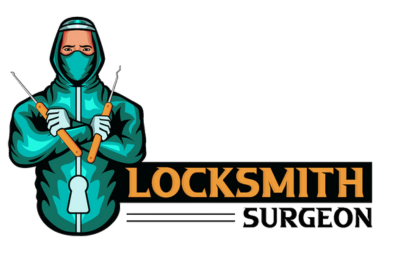As technology continues to advance, more and more businesses are turning to smart locks as a way to secure their commercial properties. Smart locks offer a range of features that traditional locks do not, such as remote access and real-time monitoring. However, like any technology, smart locks also have their downsides. In this blog, we will explore the pros and cons of smart locks for commercial properties, so you can make an informed decision on whether or not they are right for your business.
Pros of Smart Locks for Commercial Properties
Remote Access One of the main advantages of smart locks is the ability to control them remotely. With smart locks, business owners can lock and unlock their doors from anywhere using a smartphone app. This is especially useful for businesses that have multiple locations or for business owners who are frequently on the go.
Real-Time Monitoring Smart locks also offer real-time monitoring capabilities, allowing business owners to keep track of who is coming and going from their property. This feature is especially important for businesses that have a high volume of foot traffic or for businesses that need to monitor access to certain areas of their property.
Customizable Access Smart locks allow for customizable access, meaning that business owners can grant different levels of access to different employees or contractors. For example, a business owner may want to grant access to their front door to all employees, but restrict access to their server room to only a select few.
Convenient Smart locks are also convenient for business owners and employees. With smart locks, there is no need to carry around a set of keys, which can be lost or stolen. Instead, employees can use a smartphone app or key card to gain access to the property.
Cons of Smart Locks for Commercial Properties
Dependence on Technology One of the main downsides of smart locks is their dependence on technology. If the internet or power goes out, it may be difficult or impossible to gain access to the property. Additionally, if the smart lock malfunctions, it may be necessary to call a locksmith to regain access to the property.
Potential for Hacking Smart locks are also vulnerable to hacking. If a hacker gains access to the smart lock system, they may be able to unlock doors or gain access to sensitive information. While the risk of hacking can be minimized by choosing a reputable smart lock provider and using strong passwords, the risk still exists.
Cost Smart locks can be more expensive than traditional locks, both in terms of the initial installation cost and ongoing maintenance costs. While the cost of smart locks has decreased over time, they may not be the best option for businesses with limited budgets.
Compatibility Issues Not all smart locks are compatible with all commercial properties. For example, some smart locks may not be compatible with older doors or door frames. It is important to ensure that the smart lock you choose is compatible with your property before making a purchase.
Conclusion
Smart locks offer a range of benefits for commercial properties, including remote access, real-time monitoring, customizable access, and convenience. However, they also have their downsides, such as dependence on technology, potential for hacking, cost, and compatibility issues. Before deciding whether or not smart locks are right for your business, it is important to consider the pros and cons and choose a reputable provider, such as Locksmith Surgeon, who can help you make an informed decision.





